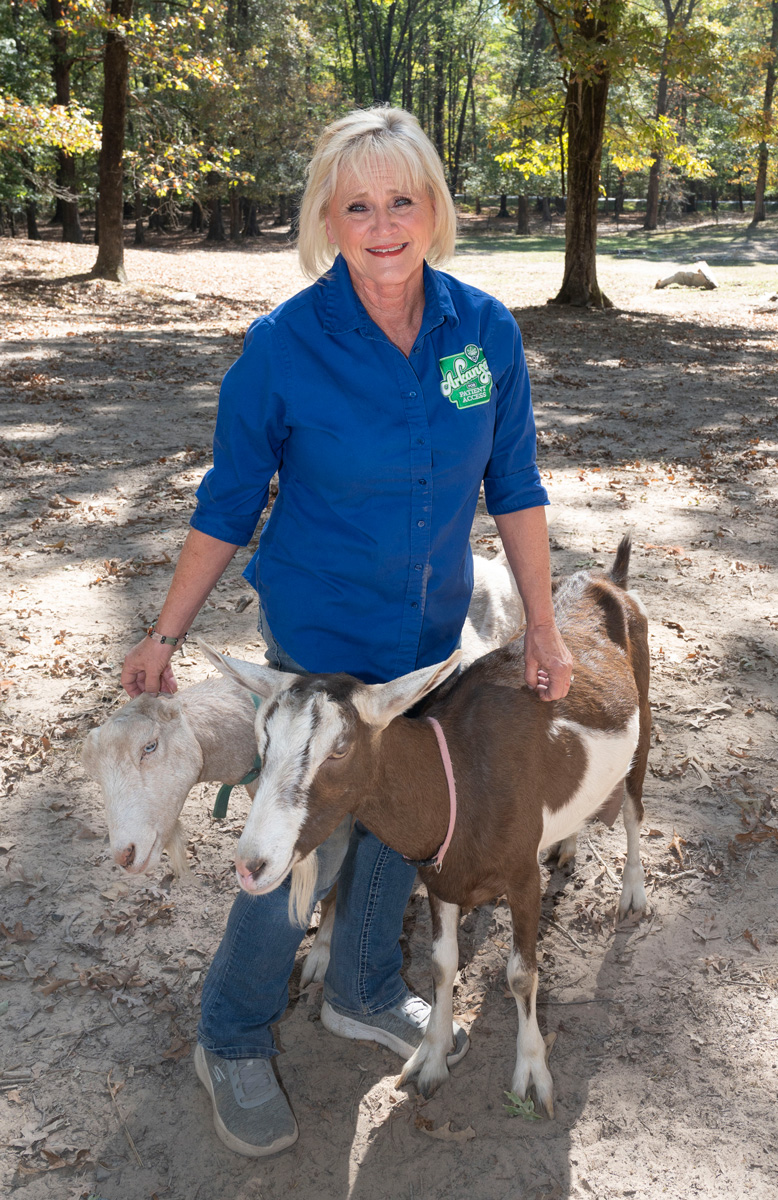Can’t Stop,
Won’t Stop
Melissa Fults Will Keep Fighting for Medical Marijuana Patients.
By Griffin Coop
Melissa Fults became a cannabis advocate out of necessity.
In 1999, Fults’ 16-year-old son was in a car accident that left him with severe injuries. He needed three neck surgeries, two back surgeries, the replacement of some disks and the insertion of some pins and a cage in his neck. One procedure where doctors inserted a gel into some of his disks required him to lie on his back for weeks with little movement.
The injuries and surgeries also left him on opioids and, several years later, doctors feared his stomach lining couldn’t hold up for much longer. The doctors were worried his stomach would rupture from the opioid use.

It’s a scenario Fults describes in stark terms.
“In 2011, they told him, ‘We’re killing you, but we don’t have an alternative, so we’ll just continue killing you,’” she said.
One of her son’s doctors told him marijuana could get him off the prescription drugs he was taking. There was only one problem: Marijuana use, even for medicinal purposes, was illegal in Arkansas.
Despite the illegality, Fults supported doing what she believed was necessary to help her son.
“Let him use an illegal drug to save his life or let him die because of politics. That wasn’t a very hard decision,” she said. “And we didn’t want anyone else to have to go through that.”
Fults’ life as a cannabis advocate had begun.
Fults and her husband, Gary, relied on the experience they had gained mobilizing and organizing railroad workers while Gary worked as a locomotive engineer.
“It put us in the perfect position to work on this,” she said.
The pair linked up with another advocate who had worked on cannabis reform locally in Northwest Arkansas and wanted to take it statewide, she said. They worked on a statewide ballot measure that would have legalized medical marijuana use in Arkansas and would have even allowed some patients to grow some plants of their own.
The group raised more than $715,000, records show, and got the measure on the ballot before Arkansas voters rejected it 51.4% to 48.6%.
But Fults didn’t give up.
In 2014, she wrote another measure, but she didn’t have the money or volunteers to get that one off the ground and never turned in the required signatures to try to get the measure on the ballot.
Two years later, in 2016, Fults was back at it with a constitutional amendment that would come close to making the ballot before Little Rock attorney David Couch, who was pushing a separate medical marijuana amendment, moved to have Fult’s measure disqualified. The Arkansas Supreme Court agreed with Couch and kept Fults’ measure off the ballot.
Couch’s amendment passed with 53.1% in favor that year and formed the state medical marijuana program that is in existence today.
“I’ll continue to fight until the patients
get what they need.”
While Fults and Couch were on opposite sides in 2016, they reunited in 2022 to fight a recreational marijuana amendment they each thought was bad for the state. Members of the Arkansas medical marijuana industry had sponsored an amendment that year that would have legalized marijuana for adults.
Fults said she isn’t opposed to recreational marijuana if people use it responsibly but she said she could not support that particular amendment.
“It wasn’t that I opposed recreational marijuana,” she said. “That was not it at all. It was the way it was done.”
Fults said the measure would have hurt patients and it would have created an unfair market. Having been an advocate for cannabis reform, Fults said she believed many people were shocked that she was in opposition.
“(The amendment) was too favorable to the industry and it was too unfavorable to the patients,” she said.
Fults’ position on the matter didn’t win her many friends in the marijuana world.
“The entire industry was furious with me,” she said.
Others who had followed Fults’ work as an advocate were upset with her as well. Fults said she would ask those folks to read the amendment to see what it would do. Once they read it, they understood her opposition, she said.
Fults and Couch even teamed up with archconservative Jerry Cox of the Arkansas Family Council to campaign against the amendment. Arkansas voters eventually rejected the amendment 56.3% to 43.7%.
After the election, the same industry that she said had been “furious” with her wanted to work with her to gain her support for another ballot measure in 2024.
Instead of attempting to legalize recreational marijuana, this amendment was a chance to expand the existing medical marijuana program. The amendment would have eliminated the cost of a medical marijuana card, extended the life of cards from one year to three years and would have allowed patients to grow some plants of their own. The amendment would have also expanded the types of medical professionals who could certify patients for the program and would have allowed those medical professionals to certify patients based on any debilitating condition, not just the 18 conditions currently allowed.
Fults said she would have liked for the amendment to have included the addition of more dispensaries but she said she couldn’t complain since the measure included almost everything she wanted.
The amendment hit a roadblock when Secretary of State John Thurston refused to count some of the signatures, but the Arkansas Supreme Court eventually required him to count them and found that there were more than enough.
But there was still one more hurdle: a legal challenge over some of the wording that would appear on the ballot.
In late October, the Arkansas Supreme Court found that the amendment’s popular name and ballot title were misleading. The ruling meant Arkansas voters would not have a chance to vote on expanding the medical marijuana program in 2024.
Fults disagreed with the ruling.
“I feel like the state has failed the patient and the 150,000 people that signed the petition,” she said. “It was all politically motivated and we need to work really hard to change our state government.”
Fults said her involvement with the measure had been “all about the patients” by eliminating the cost of a card and extending the life of the cards, among other things.
“It was pretty heartbreaking,” she said. “And the patients are the ones that are going to suffer for it.”
But Fults isn’t giving up. She said another amendment would be filed soon to give it another shot.
“I’ll continue to fight until the patients get what they need,” she said. “It’s important to make sure none of them get left behind and it’s affordable to get your card.”



